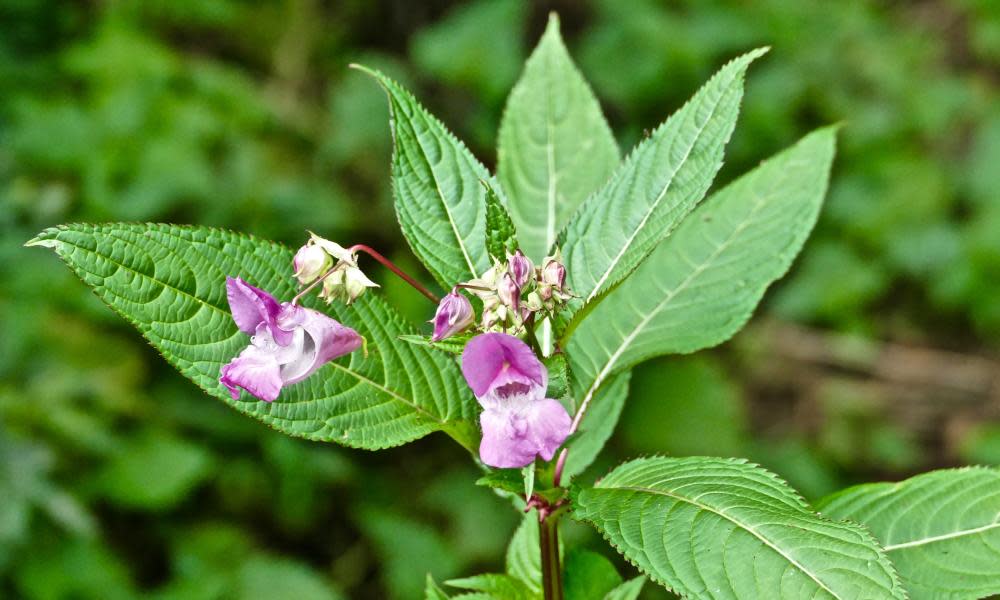Country diary: an army of volunteers is no match for the Himalayan balsam

It’s mid-September and the Himalayan balsam is on the march.
A band of volunteers has gathered in the little wild wetland that our group looks after. The railway embankment along one side is brimming over with pink and white flowers. They float above the brambles, froth along the pathways and decorate the streamside. It’s an absolute nightmare.
We roll up our metaphorical sleeves, pull down our actual ones, and get to work pulling them out. This is not our first work party, or even our second, but the rising tide of balsam makes our most strenuous efforts seem feeble.
Himalayan balsam was introduced to the country in the mid-19th century. It quickly escaped whatever genteel herbaceous border it was confined to, making a break for it along whatever ditches or waterways it could. I’d like to find something good to say about this invasive weed, but I’m struggling. Bees love it, it’s true, but only the more common honey and bumblebees. It’s no good at all for solitary bees, which rely on a patchwork of understory plants for their nectar through the season. The balsam flowers in one great flush, shades out other plants very efficiently, reduces biodiversity and weakens the soil.
You can pull out Himalayan balsam really easily, but the problem is not the roots. The problem is up top. Each plant, which can grow up to three metres high, is – by this point in the year – not only flowering but festooned with striped yellow-green seedpods, primed and ready, like tiny grenades, their pins already pulled. The lightest touch sets them off. A single plant can produce up to 800 seeds and shoot them over seven metres. No wonder the plant doesn’t waste its energy on roots. Sure, it seems to say, help yourself! Knock yourself out! Plenty more where that came from.
We troop out of the field, hours later, having made, at best, a small dent in the opposition army. Pouting prettily, the balsam lets rip its parting shot: another volley of seeds, spluttering like a fistful of mustard seeds in hot oil, the unmistakable sound of humans being given the brush-off.
• Country Diary is on Twitter at @gdncountrydiary

 Yahoo Movies
Yahoo Movies 
